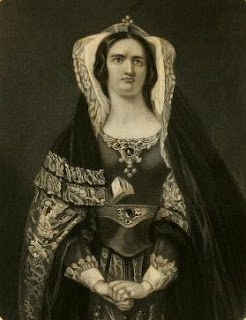You don’t have to look too deeply to see the resonances in Shakespeare’s work to current events in whatever time you live. I remember reading Macbeth in high school and thinking that however unsympathetic Lady Macbeth might be, she was a heroine to be admired though feared. I thought how appropriate that she feels the need to invoke the spirits to “Unsex me here” in order to get what she wants, since it is a woman’s sex that keeps her under male control.
Years later, after all the bra burning and the Equal Rights Amendment brouhaha, I saw Macbeth at the RSC, and again I was struck by the Lady’s pertinence. Even in the ‘90’s, glass ceilings and other accouterments of subtle antifeminism were rife.
Today, women’s rights have again become a matter of grave concern for politicians on both sides of the issues, and matters we long since thought resolved are back in the cauldron, coming to a bubbling boil.
Lady Macbeth is relevant because she embodies all that we as a society both admire and fear in women. Lady Macbeth forces Macbeth out of his introspective musings and into the arena of action. She takes control of the situation, and once she does, Macbeth can no longer hide behind his poet’s sensibilities; he must act. His choices are clear. He must collaborate with her or kill her. Because she is so compelling, because she is so forceful, so downright seductive . . . he chooses collaboration, and thus the plot thickens.
It’s the ongoing Human Comedy really. It’s the stuff that everyday human relations as well as world politics are made on.






No comments:
Post a Comment